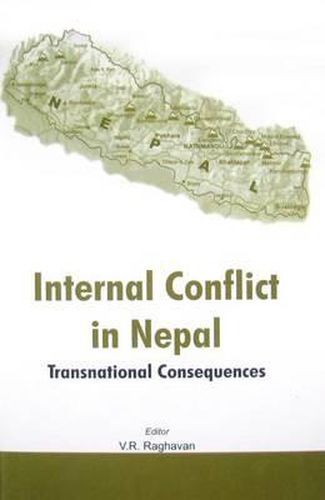Readings Newsletter
Become a Readings Member to make your shopping experience even easier.
Sign in or sign up for free!
You’re not far away from qualifying for FREE standard shipping within Australia
You’ve qualified for FREE standard shipping within Australia
The cart is loading…






This title is printed to order. This book may have been self-published. If so, we cannot guarantee the quality of the content. In the main most books will have gone through the editing process however some may not. We therefore suggest that you be aware of this before ordering this book. If in doubt check either the author or publisher’s details as we are unable to accept any returns unless they are faulty. Please contact us if you have any questions.
Neglect of socio- economic needs, inequality and injustice in Nepali society attributed to the genesis of the Maoist insurgency in Nepal. In early 1990, a mass upsurge Jana Andolan paved way for multi party of governance in Nepal. The opening up of the polity increased the awareness of inequality which helped Maoist insurgency to grow dramatically. However, in November 2005, a Comprehensive Peace Agreement was reached between the Communist Party of Nepal (CPN-UML) and other main stream political parties. Monarchy was abolished. Election to the Constituent Assembly was held and a coalition government was been put in place. Inadequate steps to address the ethnic, economic and political aspirations of multi- ethnic groups have caused further unrest and created conditions for newer conflicts. Nepal shares border with India particularly with Bihar and Uttar Pradesh, there is free movement across the borders. This facilitates movement of mafia groups, drug trafficking and political activities. Control of cross border activities remains difficult and led to serious cross border implications. This volume is compilation of the eight papers presented at a workshop organized at Varnasi in June 2010 in collaboration with Malaviya Centre for Peace Research and the Centre for the Study of Nepal, Banaras Hindu University.
$9.00 standard shipping within Australia
FREE standard shipping within Australia for orders over $100.00
Express & International shipping calculated at checkout
This title is printed to order. This book may have been self-published. If so, we cannot guarantee the quality of the content. In the main most books will have gone through the editing process however some may not. We therefore suggest that you be aware of this before ordering this book. If in doubt check either the author or publisher’s details as we are unable to accept any returns unless they are faulty. Please contact us if you have any questions.
Neglect of socio- economic needs, inequality and injustice in Nepali society attributed to the genesis of the Maoist insurgency in Nepal. In early 1990, a mass upsurge Jana Andolan paved way for multi party of governance in Nepal. The opening up of the polity increased the awareness of inequality which helped Maoist insurgency to grow dramatically. However, in November 2005, a Comprehensive Peace Agreement was reached between the Communist Party of Nepal (CPN-UML) and other main stream political parties. Monarchy was abolished. Election to the Constituent Assembly was held and a coalition government was been put in place. Inadequate steps to address the ethnic, economic and political aspirations of multi- ethnic groups have caused further unrest and created conditions for newer conflicts. Nepal shares border with India particularly with Bihar and Uttar Pradesh, there is free movement across the borders. This facilitates movement of mafia groups, drug trafficking and political activities. Control of cross border activities remains difficult and led to serious cross border implications. This volume is compilation of the eight papers presented at a workshop organized at Varnasi in June 2010 in collaboration with Malaviya Centre for Peace Research and the Centre for the Study of Nepal, Banaras Hindu University.